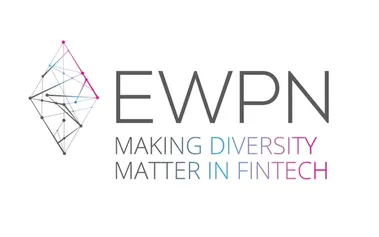Most professionals have mastered the art of the "I'm fine" response, even when they're drowning. We've built careers on appearing capable, composed, and constantly ready for whatever gets thrown our way. But this relentless performance of workplace perfection comes at a cost that extends far beyond individual wellbeing.
Workplace culture that demands constant composure creates isolation and prevents the genuine support that teams need to thrive. When everyone's pretending to be fine, real problems go unaddressed, collaboration suffers, and people burn out in silence. The pressure to appear constantly capable affects everyone from graduate hires to senior professionals, creating environments where authentic human connection becomes nearly impossible.
Creating environments where people can acknowledge struggles without career damage isn't about lowering professional standards. It's about building sustainable, high-performing teams where people feel safe to be human whilst maintaining appropriate workplace boundaries.
The Cost of Always Being "Fine"
Mandatory emotional composure at work creates hidden costs that ripple through both individuals and teams in ways we rarely acknowledge.
Individual Impact of Emotional Suppression
When people consistently suppress their real emotional state at work, the consequences extend far beyond momentary discomfort. The constant energy required to maintain a facade of competence drains cognitive resources that could be used for actual work. Someone dealing with anxiety about a family member's health whilst pretending everything's normal isn't operating at full capacity, no matter how skilled the person is at hiding it.
This emotional suppression also creates barriers to professional development. People can't seek help with knowledge gaps if admitting uncertainty feels dangerous. They make suboptimal decisions when fear of appearing confused prevents them from asking clarifying questions. The person who nods along in meetings whilst internally panicking about their understanding isn't contributing their best thinking to the team.
Team-Level Consequences
The impact multiplies across teams when everyone's maintaining their own version of "I'm fine." Collaboration suffers when team members can't share real challenges they're facing. Problems that could be solved collectively remain hidden because no one wants to be the first to admit they're struggling.
I've seen entire project teams miss critical risks because no one felt safe expressing concerns that might sound negative or pessimistic. When the culture rewards only positive, confident contributions, teams lose access to the diverse perspectives and honest assessments they need for good decision-making. The result is often project failures that could have been prevented if someone had felt comfortable raising early warning signs.
Redefining Professional Boundaries
Creating space for people to not be okay requires distinguishing between appropriate workplace vulnerability and oversharing that makes colleagues uncomfortable.
What "Not Being Okay" Looks Like Professionally
Professional honesty about struggles focuses on work-relevant impacts rather than personal details. It's the difference between saying "I'm having trouble concentrating this week due to some family stress" and providing a detailed account of personal circumstances. The first acknowledges a real factor affecting performance whilst maintaining appropriate boundaries.
Asking for help with specific skills or knowledge gaps becomes normal rather than shameful. When someone can say "I don't understand this framework well enough to make this decision confidently" without fearing career consequences, teams make better choices. Similarly, acknowledging when workload has become unsustainable allows for realistic planning rather than inevitable burnout.
This approach also includes expressing uncertainty about decisions when additional input would be valuable. The person who can say "I'm not confident this is the right direction (what are others thinking?)" often prevents teams from pursuing problematic strategies.
Maintaining Professional Boundaries While Being Human
The key lies in sharing challenges that affect work performance whilst avoiding inappropriate personal disclosure. Someone might communicate that they're dealing with stress that's affecting their sleep and concentration without detailing the source of that stress. This provides context colleagues need whilst respecting everyone's comfort levels.
Timing and context matter significantly. A brief mention during a one-to-one check-in differs from announcing personal struggles in a large team meeting. The goal is creating space for authentic professional relationships without burdening colleagues with information they're not equipped to handle.
Creating Permission in Your Team
Teams can actively create culture where people feel safe to not be okay through intentional practices and responses.
Building Psychological Safety Through Team Practices
Regular check-ins that go beyond project status updates create opportunities for honest communication. When team meetings include space for people to share challenges they're facing (both work-related and personal factors affecting work), it normalises the reality that everyone has difficult periods.
Some teams establish explicit norms that make asking for help a positive action rather than a sign of weakness. When someone requests support or admits they're struggling, the response celebrates their honesty rather than questioning their competence. This shifts the team dynamic from individual performance anxiety to collective problem-solving.
Creating structured opportunities for sharing challenges removes the burden of deciding when and how to open up. When there's a regular forum for honest communication, people don't have to choose between suffering in silence and making awkward announcements about their difficulties.
Responding When Someone Isn't Okay
How teams respond when someone shares that they're struggling determines whether psychological safety is real or performative. Active listening without immediately jumping to solutions shows respect for the person's experience and agency. Sometimes people need to be heard before they're ready for advice.
Asking what type of support would be most helpful acknowledges that different situations require different responses. Someone might need temporary workload adjustment, flexible working arrangements, or simply understanding that their usual performance might be affected for a period.
Following up consistently without being intrusive demonstrates ongoing care whilst respecting boundaries. A brief check-in a few days later shows the team remembers and cares without requiring the person to provide updates they might not be ready to share.
Supporting People Through Difficult Periods
How organisations respond when people struggle reveals whether their commitment to employee wellbeing is genuine or merely aspirational.
Practical Support That Actually Helps
Real support often means adjusting expectations temporarily without making people feel guilty about needing accommodation. When someone's dealing with a family crisis, recognising that their capacity might be reduced for a period allows them to focus on what matters most without additional work stress.
Progressive organisations are implementing mental health budgets that allow employees to access therapy, counselling, or wellbeing support without financial barriers. When someone can use company resources to get professional help during difficult periods, it demonstrates genuine investment in their long-term wellbeing.
Recognition of non-traditional grief and life challenges makes a significant difference. Pet bereavement leave acknowledges that losing a beloved animal can be genuinely devastating. Supporting people through fertility struggles, caring for elderly parents, or dealing with chronic illness shows understanding that human difficulties don't fit neat categories.
Long-Term Culture Building
Making support visible helps others understand what's available when they need it. When teams see colleagues taking mental health days, using employee assistance programmes, or returning from difficult periods with renewed energy, it normalises seeking help rather than struggling alone.
One team member I know was given a month of paid leave to handle a family crisis without any fear of job loss or career impact. When they returned, their commitment and performance were stronger than ever, and the entire team's trust in the organisation deepened. Other team members knew they could access similar support if needed, which actually reduced stress across the group.
Creating policies that protect people during vulnerable periods requires commitment from leadership, but the investment pays dividends in loyalty, performance, and team resilience. When people know their job security isn't threatened by life's inevitable difficulties, they can address challenges more effectively and return to full contribution more quickly.
Conclusion
Permission to not be okay at work isn't about lowering standards or accepting poor performance. It's about creating conditions where people can perform at their best by addressing the reality that everyone faces difficult periods in their lives.
Teams where people feel safe to be human consistently outperform those built on facades of constant competence. When someone can acknowledge they're struggling and receive appropriate support, they often bounce back stronger and more committed than if they'd been forced to suffer in silence.
The next time someone asks how you're doing, consider whether there's space in your workplace for an honest answer. Look for opportunities to normalise human struggles in your professional conversations. You might discover that permission to not be okay is exactly what your team needs to become genuinely stronger together.




